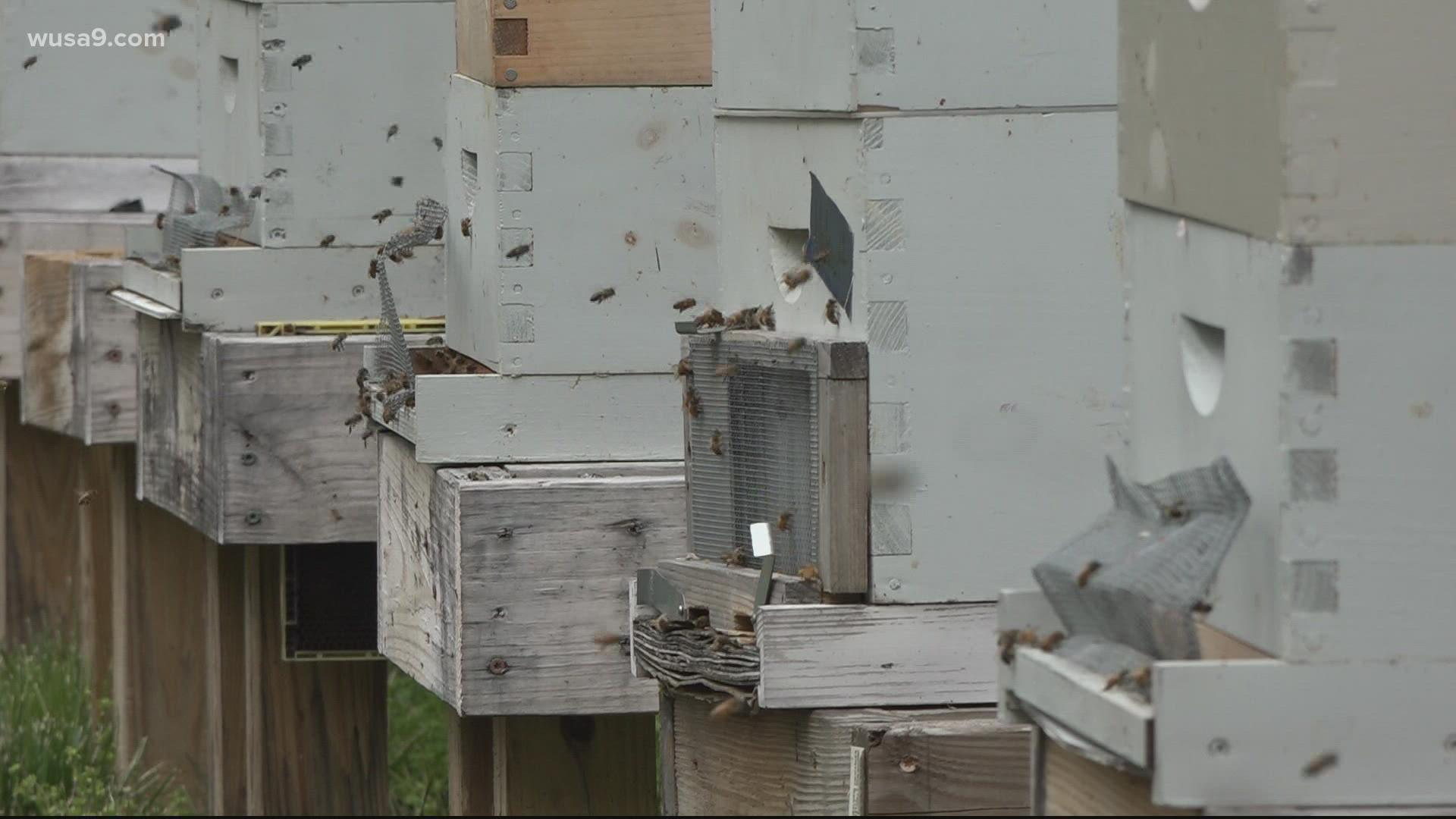WASHINGTON — One of TV’s buzziest shows delivered quite a sting to audiences, and it has people talking. Spoiler alert for Bridgerton fans: we won’t tell you who, but one of the characters is swiftly killed off early in its second season, immediately following a bee sting.
THE QUESTION
Can a bee sting kill?
THE SOURCES
- Doctor Kerri Layman, Chief of Emergency Medicine at MedStar Georgetown University Hospital
- The CDC
- Sean Kennedy, owner of Bee Curious LLC and the go-to bee-keeper at the Residence of the Swiss Ambassador
THE ANSWER
The fictional plot point is reality for anyone severely allergic to the insects, though death by bee sting is very rare.
WHAT WE FOUND
Sean Kennedy, who tells us he was stung more than 100 times last year, says a sting is always deadly — for the bee.
“If a honey bee stings you, the honeybee dies. It is not motivated to sting you unless it's absolutely necessary to protect the colony or protect itself,” he explained.
The CDC’s cause of death database lists “contact with hornets, wasps, and bees.” Dr. Kerri Layman explains that a sting can be fatal if someone has a severe allergic reaction causing anaphylactic shock; in this case, blood pressure drops and airways swell up.
"This is very near and dear to my heart. My father is actually allergic, very allergic to bees. He has anaphylactic reactions to them,” Dr. Kerri Layman said. “This is something that can happen very quickly, this can happen within a matter of minutes.”
An epinephrine shot – you may have heard of an EpiPen – can reverse the effects: Dr. Layman says most people with severe allergies carry one.
“If you don't know that you're allergic to bees, the things to look out for: any type of throat tightness, trouble breathing, feeling like you're going to pass out,” said Dr. Layman, “those would be signs to quickly reach out and ask for help.”
So we can Verify yes, a bee sting can kill, but it’s very rare.
Back to that CDC cause of death database: officially, 708 people died from hornet, wasp or bee stings nationwide from 2011 to 2020.To put it in perspective, far more have died from a fall from bed in that same time: 9,229.
“Many of us experience mild symptoms from bee stings,” said Dr. Layman.
Itchiness and hives, swelling, or pain? Dr. Layman recommends antihistamines, ibuprofen, and ice. Some experts recommend gently scraping the stinger off–Layman advises leaving it alone.
“I think you can make things worse. If you try to dig it out. You don't want to cause an infection there,” she said.
And Kennedy says: Leave the bees alone, too—we’re more of a threat to them, than they are to us.

